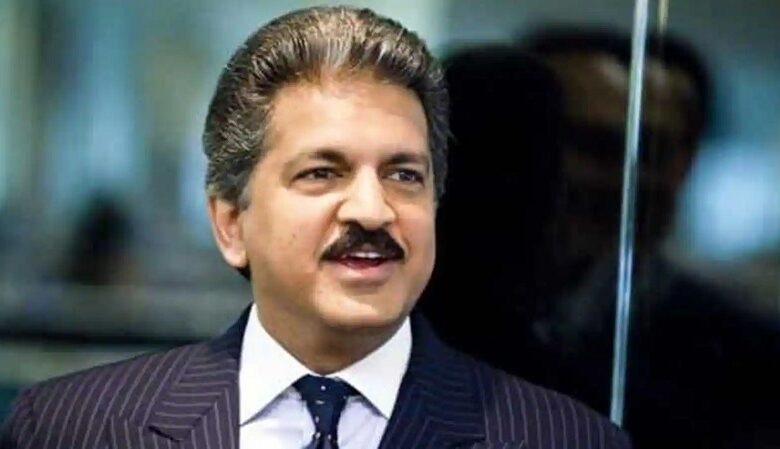Anand Mahindra’s Powerful Response to the Question of India’s Space Program and Poverty

In a powerful response to an insensitive question posed by a BBC anchor, Anand Mahindra, the Chairman of Mahindra Group, provided a nuanced perspective on India’s space program and its relationship with poverty. The exchange occurred on August 24, when the BBC anchor questioned whether India should be allocating resources to a space program like Chandrayaan-3, given the country’s existing infrastructural challenges and widespread poverty. The anchor highlighted that a significant portion of India’s population lacks access to basic amenities such as toilets, and questioned the rationale behind spending money on space exploration.
The video segment featuring this exchange quickly went viral on social media, particularly after the successful landing of Chandrayaan-3 on the Moon’s South Pole. Responding to the tweet that contained the BBC anchor’s video, Anand Mahindra addressed the issue with both historical context and a visionary perspective.
Mahindra pointed out that India’s poverty is rooted in the legacy of colonial rule that systematically drained the wealth of the subcontinent. He highlighted that beyond material possessions like the Kohinoor Diamond, the true loss suffered was a depletion of pride and confidence in India’s own capabilities. The colonial agenda was not only to exploit resources but also to instil a sense of inferiority in the colonized populace.
He elaborated that investing in both infrastructure development like toilets and ambitious space exploration is not contradictory. Mahindra emphasized that the significance of reaching the moon lies not only in scientific accomplishment but also in its impact on restoring national pride, nurturing self-confidence, and fostering the belief in progress through science. It provides the impetus for India to rise above its historical challenges and aspire to elevate itself from poverty.
Mahindra articulated, “The greatest poverty is the poverty of aspiration.” He underscored that India’s successful mission to the moon’s South Pole holds the potential to shift the nation’s mindset, empowering its citizens to envision a future of progress, innovation, and global competitiveness.
India achieved a historic milestone on August 23 by becoming the first country to achieve a soft landing on the moon’s South Pole. This feat marked India as only the fourth country, after Russia, the United States, and China, to accomplish such a mission. The success of Chandrayaan-3 serves as a testament to India’s growing capabilities in space exploration, bolstering its reputation on the global stage.
Anand Mahindra’s response encapsulated the multidimensional impact of India’s space program. It goes beyond scientific achievement; it acts as a catalyst for transformation on social, economic, and psychological fronts. By investing in advanced space exploration, India is not merely exploring the cosmos; it is rekindling a sense of national pride and resilience.
The exchange also brings to the forefront the complex balance that developing countries often grapple with—allocating resources to scientific advancement while addressing pressing social and infrastructural needs. Mahindra’s response exemplifies the notion that these seemingly contrasting priorities are not mutually exclusive. Rather, they are interconnected aspects of nation-building, working in tandem to uplift the nation as a whole.
In a world where cynicism and scepticism often cast shadows on ambitious endeavours, Mahindra’s words serve as a reminder of the intangible yet profound effects that achievements like space exploration can have on a nation’s spirit. They inspire individuals to strive for excellence, to transcend limitations, and to forge ahead despite challenges.
Anand Mahindra’s eloquent response to the question of India’s space program and poverty highlights the intricate relationship between national pride, scientific progress, and societal transformation. India’s recent accomplishment in lunar exploration stands as a testament to its determination to overcome historical burdens and reclaim its position as a beacon of innovation. As the country continues to advance in space exploration, it simultaneously addresses its developmental needs, echoing Mahindra’s sentiment that aspiration is the antidote to the poverty of spirit. The successful Chandrayaan-3 mission marks a significant chapter in India’s journey towards a brighter future, characterized by both material advancement and an invigorated national ethos.
News Mania Desk / Agnibeena Ghosh 26th August 2023






